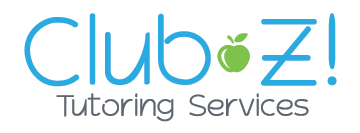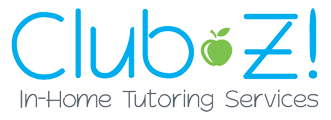Reading Common Core State Standards
The Common Core State Standards for English Language Arts and Literacy build on the best of existing standards and reflect the skills and knowledge students will need to succeed in college, career, and life. Understanding how the standards differ from previous standards—and the necessary shifts they call for—is essential to implementing the standards well.
The following are key shifts called for by the Common Core:
-
Regular practice with complex texts and their academic language

Rather than focusing solely on the skills of reading and writing, the ELA/literacy standards highlight the growing complexity of the texts students must read to be ready for the demands of college, career, and life. The standards call for a staircase of increasing complexity so that all students are ready for the demands of college- and career-level reading no later than the end of high school. The standards also outline a progressive development of reading comprehension so that students advancing through the grades are able to gain more from what they read.
Closely related to text complexity and inextricably connected to reading comprehension is a focus on academic vocabulary: words that appear in a variety of content areas (such as ignite and commit). The standards call for students to grow their vocabularies through a mix of conversation, direct instruction, and reading. They ask students to determine word meanings, appreciate the nuances of words, and steadily expand their range of words and phrases. Vocabulary and conventions are treated in their own strand not because skills in these areas should be handled in isolation, but because their use extends across reading, writing, speaking, and listening.
Because the standards are the roadmap for successful classrooms, and recognizing that teachers, school districts, and states need to decide on the journey to the destination, they intentionally do not include a required reading list. Instead, they include numerous sample texts to help teachers prepare for the school year and allow parents and students to know what to expect during the year.
The standards include certain critical types of content for all students, including classic myths and stories from around the world, foundational U.S. documents, seminal works of American literature, and the writings of Shakespeare. The standards appropriately defer the majority of decisions about what and how to teach to states, districts, schools, and teachers.
-
Reading, writing, and speaking grounded in evidence from texts, both literary and informational.

The Common Core emphasizes using evidence from texts to present careful analyses, well-defended claims, and clear information. Rather than asking students questions they can answer solely from their prior knowledge and experience, the standards call for students to answer questions that depend on their having read the texts with care.
The reading standards focus on students’ ability to read carefully and grasp information, arguments, ideas, and details based on evidence in the text. Students should be able to answer a range of text-dependent questions, whose answers require inferences based on careful attention to the text.
Frequently, forms of writing in K–12 have drawn heavily from student experience and opinion, which alone will not prepare students for the demands of college, career, and life. Though the standards still expect narrative writing throughout the grades, they also expect a command of sequence and detail that are essential for effective argumentative and informative writing. The standards’ focus on evidence-based writing along with the ability to inform and persuade is a significant shift from current practice.
-
Building knowledge through content-rich nonfiction

Students must be immersed in information about the world around them if they are to develop the strong general knowledge and vocabulary they need to become successful readers and be prepared for college, career, and life. Informational texts play an important part in building students’ content knowledge. Further, it is vital for students to have extensive opportunities to build knowledge through texts so they can learn independently.
In K-5, fulfilling the standards requires a 50-50 balance between informational and literary reading. Informational reading includes content-rich nonfiction in history/social studies, sciences, technical studies, and the arts. The K-5 standards strongly recommend that texts—both within and across grades—be selected to support students in systematically developing knowledge about the world.
In grades 6-12, there is much greater attention on the specific category of literary nonfiction, which is a shift from traditional standards. To be clear, the standards pay substantial attention to literature throughout K-12, as it constitutes half of the reading in K-5 and is the core of the work of 6-12 ELA teachers. Also in grades 6-12, the standards for literacy in history/social studies, science, and technical subjects ensure that students can independently build knowledge in these disciplines through reading and writing. Reading, writing, speaking, and listening should span the school day from K-12 as integral parts of every subject.
Article Source: CoreStandards.org
Club Z! In-Home and Online Tutoring is the leading provider of academic tutoring and test preparation services in the United States and Canada for over 20 years. Our learning programs are customized for your family's unique needs, offering a tailored learning plan for each and every student. We are proud to serve San Diego Coast including La Jolla, Mission Bay, Ocean Beach, Pacific Beach, Point Loma and surrounding areas.
Club Z! offers comprehensive In-Home Academic and Test Prep Tutoring from Pre-K to Pre-Med and everything in between! Residents of San Diego Coast and surrounding areas will love our in-home tutoring services in the comfort and convenience of your home, on school campus, at the library or in a small group!
Club Z! offers Online Tutoring and Test Prep for most subject areas and grade levels in San Diego Coast and surrounding areas! Connect with an expert tutor on our virtual learning platform with 1-on-1 instruction tailored to your unique needs and schedule.


